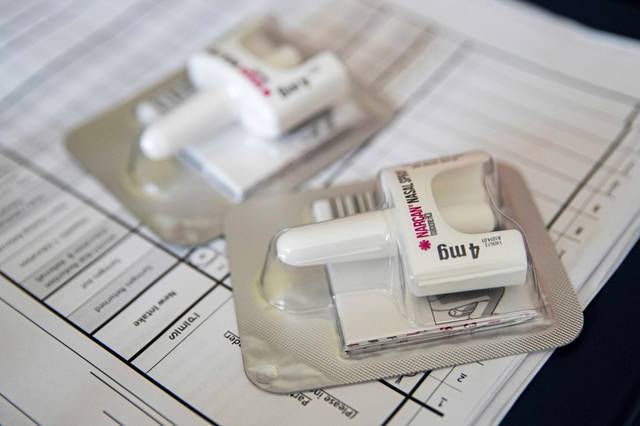https://triblive.com/news/pennsylvania/pa-drug-overdose-deaths-rose-in-2020-likely-fueled-by-pandemic-officials-say/
Pa. drug overdose deaths rose in 2020, likely fueled by pandemic, officials say

Overdose deaths in Pennsylvania ticked upward in 2020 after two years of relatively stable numbers, something officials say is likely the ripple effect of a pandemic that caused an influx of stress and isolated people from their support systems.
“The uncertain, stressful and isolating nature of the pandemic has caused some people to use substances more frequently or to experience a recurrence of use,” said Jennifer Smith, secretary of the Department of Drug and Alcohol Programs.
As of March, the state was reporting 4,880 overdose deaths, said Ray Barishansky, commander of the state’s Opioid Command Center and a deputy secretary for health preparedness.
He said officials expect that number to go up, as finalized death records for overdose victims can often be delayed for three to six months.
Overdose deaths, particularly those caused by opioids, had been decreasing since hitting an all-time high in 2017 when nearly 5,400 people died across the state. Over the next two years, that number dropped by nearly 20% to 4,422 and 4,458 in 2018 and 2019, respectively.
“During the covid-19 pandemic, we are unfortunately seeing a different picture,” Barishansky said, noting that increased numbers should not overshadow the message that “treatment works and recovery is possible.”
Records for Allegheny County, though not yet finalized, show an increase in overdose deaths at the local level as well. According to Overdose Free PA, 682 people died in the county last year, up from 571 in 2019 and 492 in 2018. The county, like Pennsylvania s a whole, saw drug deaths peak in 2017 at 737.
The Opioid Command Center is holding meetings with health officials in the counties that saw the largest spikes in deaths: Allegheny, Cambria, Lebanon and Pike counties, Barishansky said.
In Westmoreland County, coroner Ken Bacha reported a 7% increase in accidental drug overdose deaths, which he said jumped from 115 to 123 in 2020.
Prescription overdose deaths decreased by 2% last year and heroin overdose deaths decreased 2% from 2019, but fentanyl-related overdoses increased 18% in 2020, Bacha’s report noted.
The overall statewide increase was something officials predicted. Barishansky warned in December that anecdotal evidence from across the state indicated drug deaths were on the rise.
“The opioid crisis continues, and we cannot turn our back on it,” he said at the time.
The state’s Get Help Now hotline is available 24/7 at 800-662-HELP (4357).
Copyright ©2026— Trib Total Media, LLC (TribLIVE.com)
